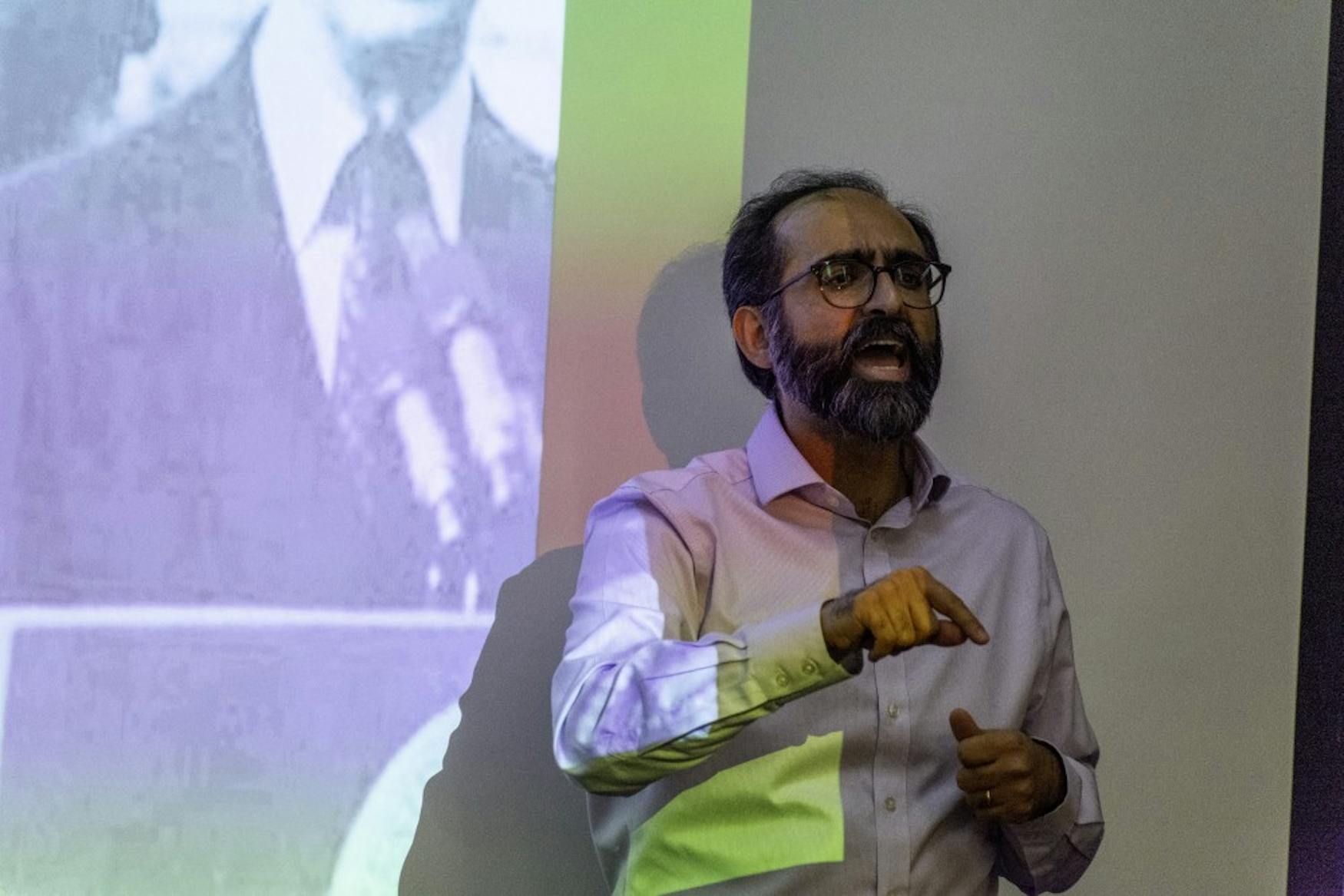Scholar discusses human rights, Iranian Revolution
A professor discussed how groups in favor of and opposing the Shah dealt with human rights during the Iranian Revolution.
Roham Alvandi, a Columbia University history and political science professor, gave a talk at at the University on Wednesday about human rights issues relating to the Iranian revolution of 1979. The talk, “Human Rights and the Global History of the Iranian Revolution,” was sponsored by the Crown Center for Middle East Studies, the International and Global Studies program and the History and Politics Departments.
Alvandi is the director of the IDEAS Cold War Studies Project at the London School of Economics and Political Science.
While Iranian opposition to the monarchy sided with Western human rights organizations during the revolution, the state embraced a non-Western narrative of human rights and prioritized the state sovereignty, according to Alvandi. In his talk, Alvandi examined “how both the Shah and his opponents sought to instrumentalize human rights in the international struggle that sparked the Iranian Revolution of 1978-79,” according to the event description.
The talk started with Alvandi’s explanation of the historiography of the revolution. In 1976, the Shah of Iran, Mohammad Reza Pahlavi, started to lose public support and control over the government, and the Pahlavi family tried to address human rights issues because of the tremendous international pressure on Iran from various human rights organizations. As Pahlavi was vulnerable to pressure due to a growing national and global spotlight on his human rights abuses, he wanted to improve human rights as an instrument to increase his legitimacy. In the meantime, the opposition also called for the improvement of human rights issues. Alvandi said, however, that the opposition used human rights as an instrument to oppose Pahlavi’s regime but in no way internalized human rights and liberal values.
Alvandi also spoke about the Shah’s visit to West Germany and the huge demonstrations by German students against the Shah. According to Alvadi, these demonstrations introduced a new narrative to the German agenda, which was only pro-Shah before the international support to the Iranian opposition. “The narrative up until this point in the German press had really been one of the Shah is the great modernizer as the sort of westernizing modern monarch of Iran. And with these protests, that narrative begins to change critically in public sphere,” he said. Alvandi claimed that the international climate, including the German protests, was a factor that led to the revolution. Alvadi said that the discourse alone was enough to weaken the Shah’s regime.
Several audience members critiqued Alvandi’s presentation for generalizing many factors of the opposition into one. Prof. Naghmeh Sohrabi (HIST) said, “I’m trying to kind of map out the argument that you’ve been making and I wonder if some of the problems … have to do with the fact that you collapse everything into the term ‘opposition,’ when these are very distinct groups operating with different audiences and are doing different kinds of work.” Prof. Nader Habibi (ECON) added, “I think I’m the only one who was in Iran in 1977-78 as a high school student. What I observed based on interactions with various groups, especially young groups, is that it seems to me that many people sincerely wanted human rights, but within the utopian vision of what they thought the future would look like.”
Alvandi responded to Sohrabi’s comments by saying that the opposition groups were different in many ways including “their tactics and different utopias they are subscribed to,” but “you’re hard-pressed to find by late, late 1960 early 1970s, anyone whose advocating for the idea that reforming the Pahlavi state is possible.” The discussion went on back and forth, and Alvandi and Sohrabi could not agree on whether the whole opposition could be viewed as one group that is advocating for the overthrow of the monarchy.



Please note All comments are eligible for publication in The Justice.